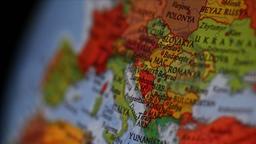Telecommuting is one of the great novelties of our lives in this age of COVID-19. It isn’t that the technology is new of course, but the manner in which we use it definitely is. You can be at a meeting in Riyadh in the morning, participate in a debate in Berlin in the early afternoon, and be in a workshop in Washington, D.C before dinner, all the while staying at home in Ankara. No jet lags, no overnight stays, no hassle at crowded airports. You can participate in the global debate – at times more than it is necessary, as we now have more free time than usual.
It’s the virus that changed the way things were, but I think we still underestimate its importance when talking about the old list of mega trends. We need more agile mechanisms to adjust policy discussions and define new recipes for old problems.
Let me be more specific by focusing on one major mega trend that was here before the virus and will continue to be afterwards: Demographic transition.
It has three faces: The aging population in the North, the youth bulge in the South, and migration from the South to the North. This is becoming inevitable in the absence of good governance and good jobs in the South. There is no easy solution due to vast skills mismatches. Improving skills in the South require matching them with good jobs Otherwise, emigration claims a priority.
What is more, in the South, migration is also a developing country problem. Today, 87 percent of forced migrants are hosted by neighboring countries, which tend to be developing countries themselves. Turkey is hosting the largest number of migrants, with 4 million refugees inside the country, and many more living under Turkish control inside Syria. At this point, there are more Syrians living under some form of Turkish protection then there are living under the Damascus regime.
COVID-19 has changed the context of all discussions regarding the labor market integration of migrants in their hosting countries. This is about the virus-induced sudden stop in global economies. According to a TEPAV survey in March 2020, conducted in 12 provinces covering a sample of 3,033 of whom 43 percent were Syrians and 57 percent were Turkish, 32 percent of participants said their job is not affected by COVID-19, meaning that 68 percent are affected in one way or another. Among Turkish citizens, 38 percent said their work is not affected by the virus, while this number was at 23 percent among Syrian refugees. Looking for a more vulnerable group? Only 7 percent of women noted no change in their working status.
With a heavy blow to the economy, the virus has changed the context of the debate on refugees in the labor market. Before the virus, it was mostly about funding skills development and entrepreneurship to enable refugees to become part of the labor market. Since the virus, it’s about global coordination to provide US dollar liquidity, especially to refugee-hosting developing countries. Because the world economy has come to a sudden stop, this is important simply to limit the damage. Meanwhile, wars don’t stop because of the virus, and people who are forced out of their homes continue to appear on our borders. When you look at internally displaced, the health risk toward neighboring countries is higher due cramped camps on the other side of the border.
The virus has changed the context of our debate. It is no longer primarily about targeting solely the migrants, like improving their skills, but about securing the refugee-hosting economy’s resilience. It’s not solely a debate about the technicalities of burden sharing (which was not even close to satisfactory to begin with) but also about the nature of burden sharing now. That is why we cannot continue to modify old policy proposals; we need to be aware of the new context we are in and come up with a radically new menu of policies. Thinking about the most vulnerable parts of our societies would be a good start.
This commentary was published in Hürriyet Daily News on 20.06.2020





